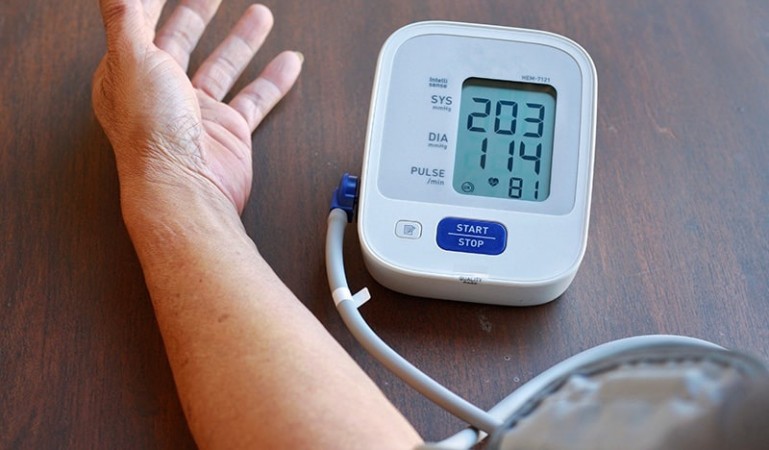Hypertension, or high blood pressure, is a common chronic condition that can lead to serious health complications if left untreated. It is often called the "silent killer" because it typically has no symptoms but can cause significant damage to the heart, blood vessels, and other organs.
Causes and Risk Factors
Hypertension can be influenced by a variety of factors, including:
- Genetics: Family history of high blood pressure increases the risk.
- Age: The risk of hypertension increases with age.
- Diet: High salt intake, low potassium intake, and excessive alcohol consumption can contribute to high blood pressure.
- Weight: Being overweight or obese increases the risk.
- Physical Inactivity: A sedentary lifestyle contributes to hypertension.
- Stress: Chronic stress can contribute to elevated blood pressure.
- Chronic Conditions: Conditions such as diabetes and kidney disease can lead to hypertension.
- Symptoms and Health Consequences
Although hypertension often has no symptoms, it can lead to serious health issues, including:
- Heart Disease: Increased risk of heart attacks, heart failure, and stroke.
- Kidney Damage: Hypertension can damage the kidneys, leading to chronic kidney disease.
- Vision Problems: Damage to blood vessels in the eyes can cause vision loss.
- Aneurysms: Increased blood pressure can lead to the formation of aneurysms.
- Cognitive Decline: Hypertension can affect cognitive function and increase the risk of dementia.
Management and Prevention
- Healthy Diet: A diet rich in fruits, vegetables, whole grains, and low in salt and saturated fats can help manage blood pressure.
- Regular Exercise: Physical activity helps maintain a healthy weight and lower blood pressure.
- Weight Management: Losing excess weight can significantly reduce blood pressure.
- Limit Alcohol: Reducing alcohol intake can help lower blood pressure.
- Avoid Tobacco: Smoking cessation is crucial for overall cardiovascular health.
- Stress Management: Techniques such as yoga, meditation, and deep breathing can help manage stress.
- Medications: Blood pressure medications, such as diuretics, beta-blockers, and ACE inhibitors, may be prescribed to manage hypertension.
- Regular Monitoring: Regular blood pressure checks are essential for managing hypertension.
Hypertension is a manageable condition that requires a combination of lifestyle changes and, in some cases, medication. Understanding the causes, risk factors, and preventive measures is essential for maintaining healthy blood pressure levels. A balanced diet, regular physical activity, stress management, and routine health monitoring are key strategies for managing hypertension. Public health initiatives that promote awareness and education about hypertension can help reduce the prevalence and impact of this condition.
THESE Five Simple Lifestyle Habits Help Keep Your Uterus Happy
Easily Accessible Five Foods That Help Treat Symptoms of Vertigo
These 10 Signs Show You Are Iron Deficient and How You Can Fix It
